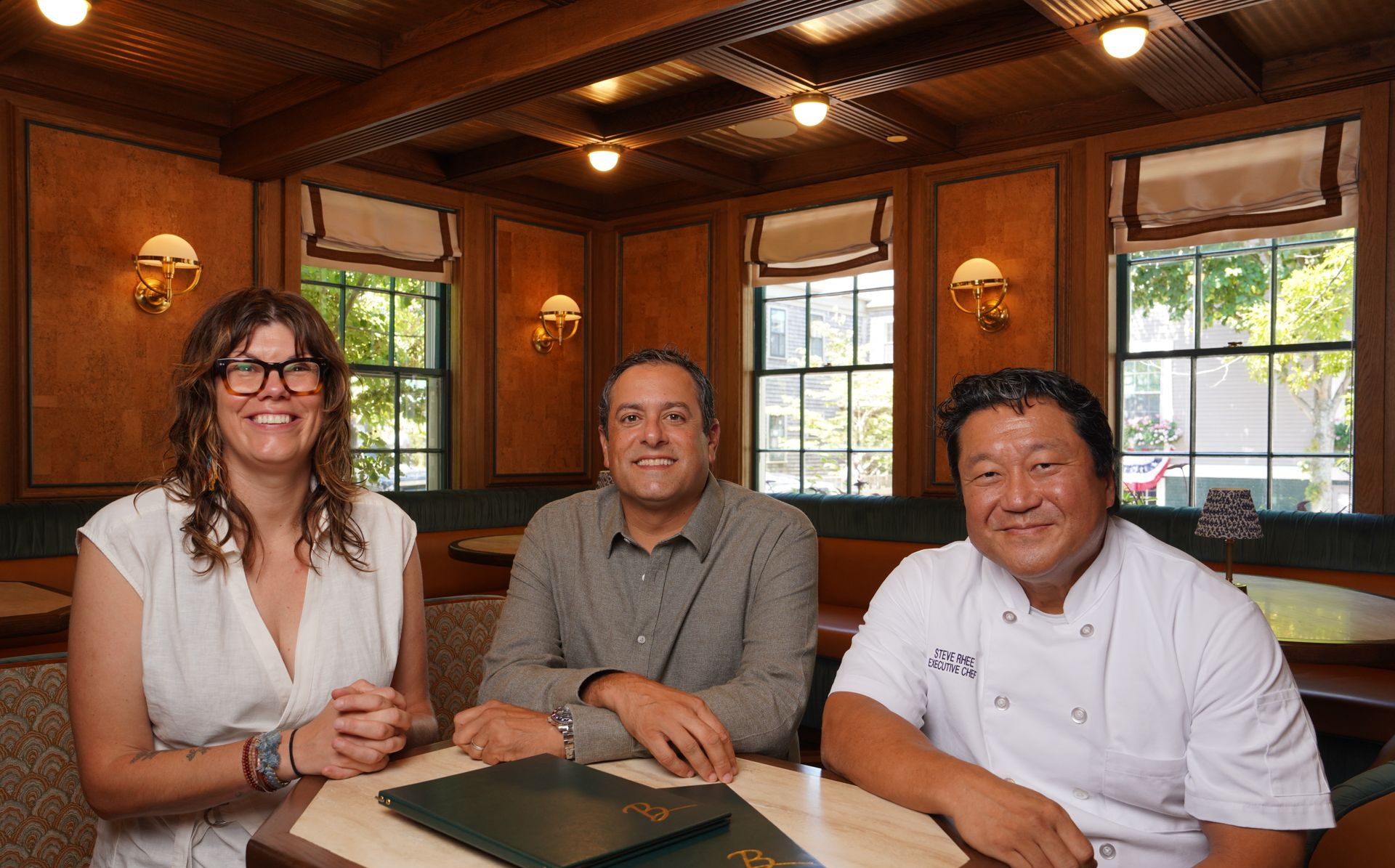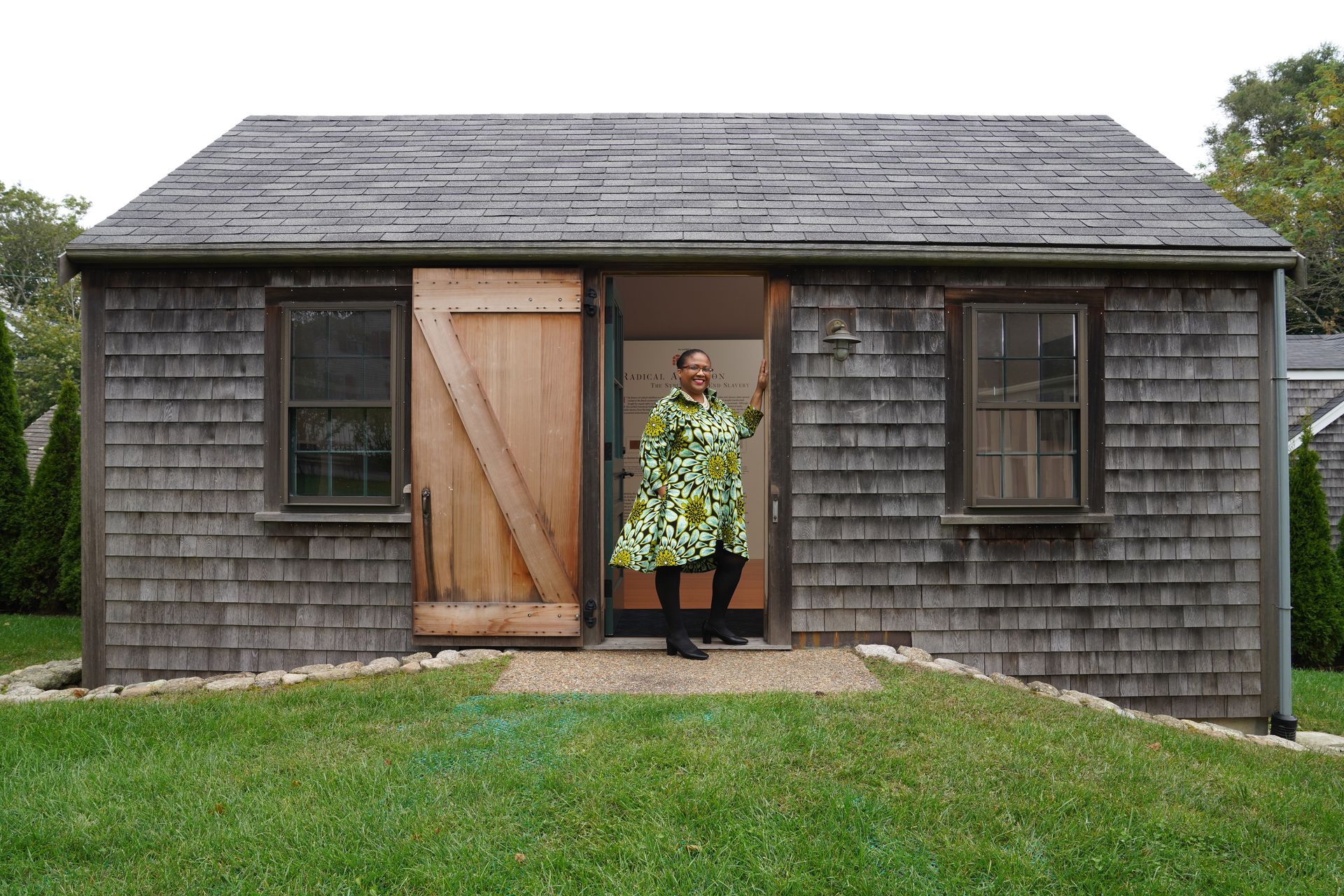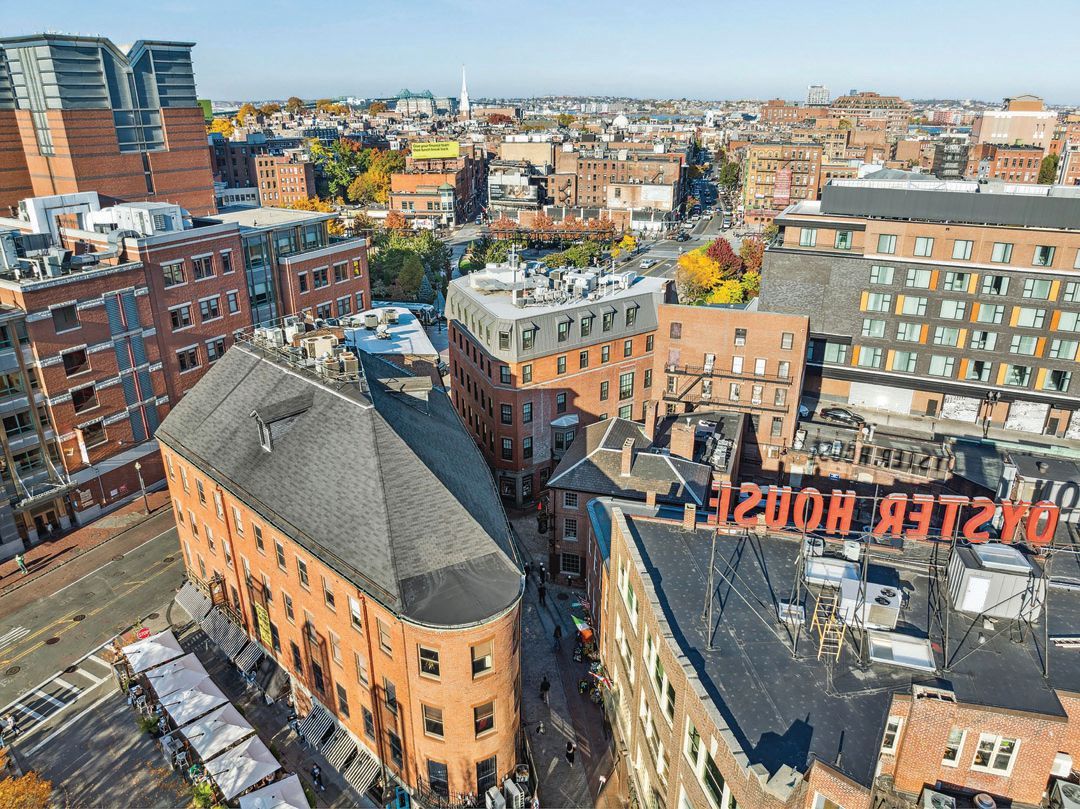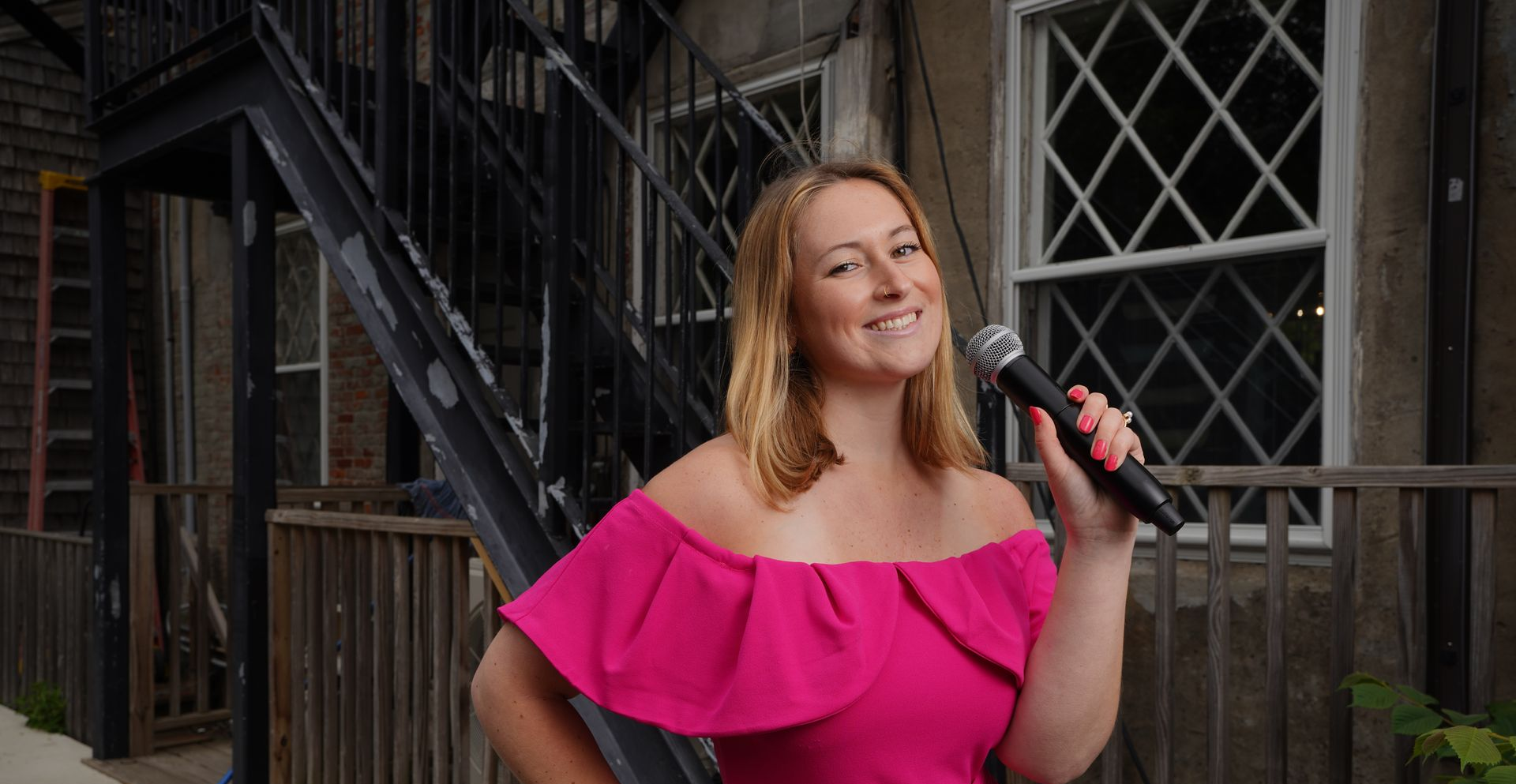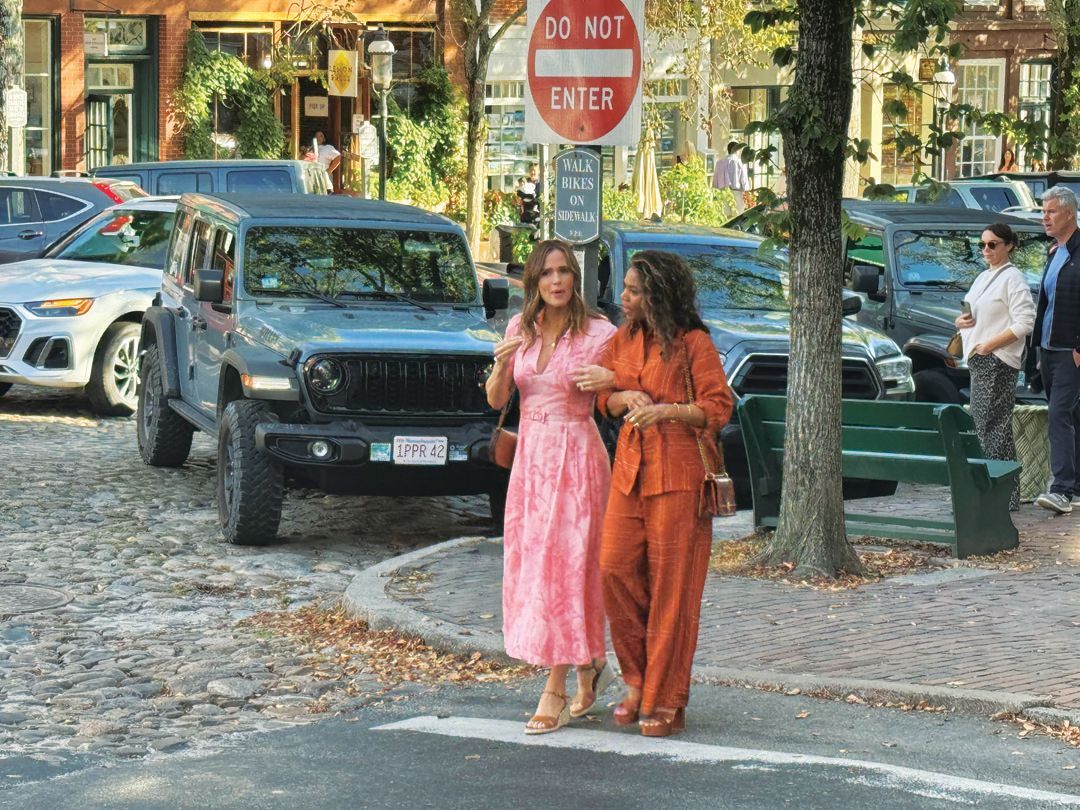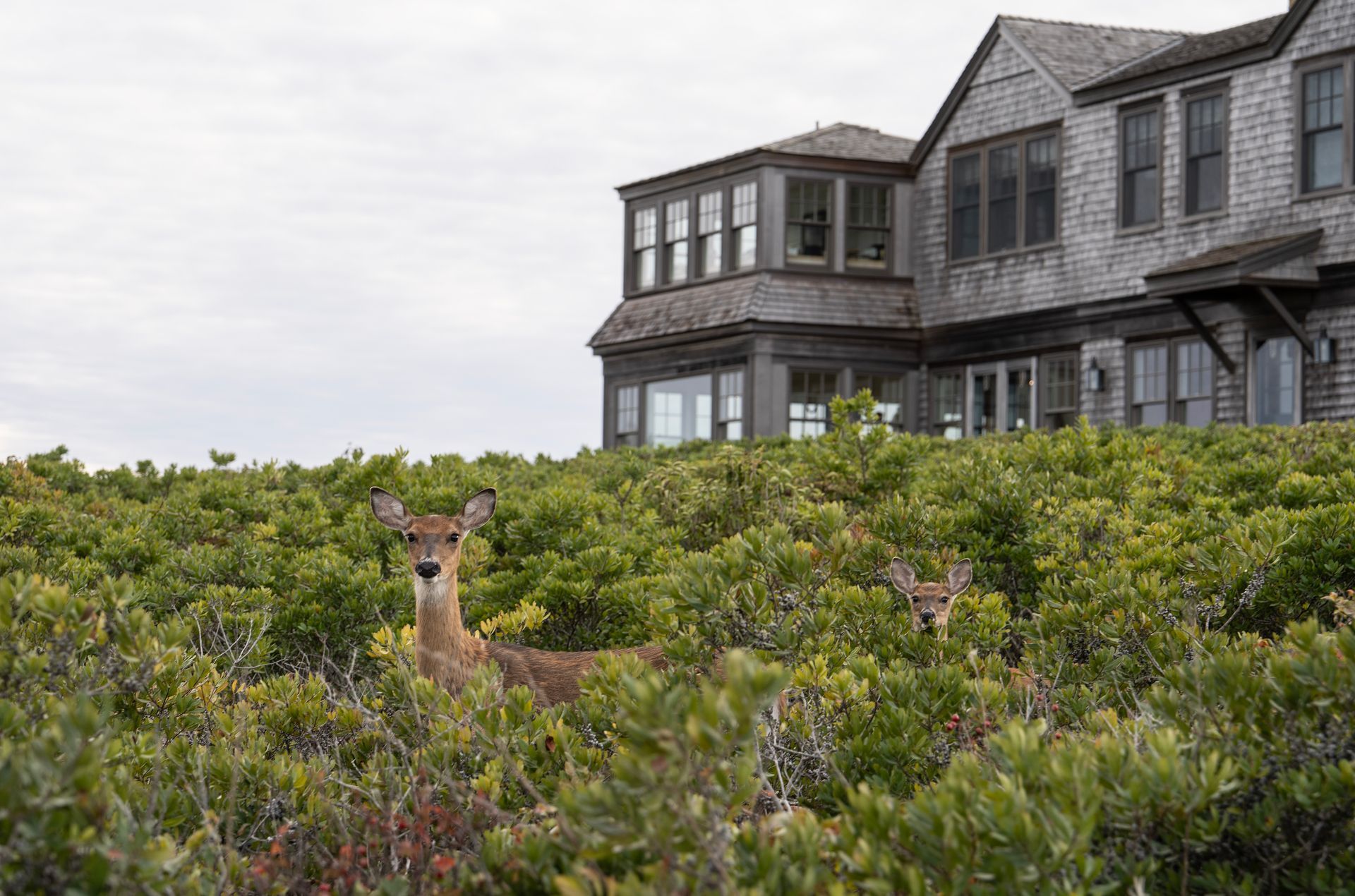Beatlemania
Nantucket rock band Cranberry Alarm Clock plays the Beatles Festival in Liverpool
Written by John Stanton
Photography by Kit Noble
They were like a lot of kids who grew up in the ’60s and early ’70s, swept up in one of the many cultural ripples that went through those decades. There was something about the music, an energy that welcomes you in. It is still with them today.
"To me it was seeing the Beatles on The Ed Sullivan Show,” George “Skip” Curtin said. “I was nine years old. It was a monumental moment in my life. JFK had just been assassinated and the country was in a funk. Even as a little kid I could sense that. Then when [rock and roll] happened, it lifted the country, especially for the kids.
Somewhere there is a snapshot of a very young Curtin standing in front of the family Christmas tree holding his new guitar. Today, Curtin and his bandmates call themselves Cranberry Alarm Clock. There is a touch of gray to the band. Curtin is 70 years old, and his bandmates are younger but not by much. They still share the thrill the music gave them over six decades ago.
The band—Curtin on lead guitar, Tom Proch on drums and vocals, his brother Phil on bass guitar and Frankie Hunter playing rhythm guitar and singing—are sitting at a table in the Chicken Box one afternoon, talking about bringing their music to the International Beatleweek Festival in Liverpool, England, this August. It is a six-day event dedicated to the music of John, Paul, George and Ringo. The event takes place at the Cavern Club, the headwaters of British rock and roll where the Beatles found their creative footing. “The Cavern is the holy of holies, man,” Hunter said. “You play there, that’s it."
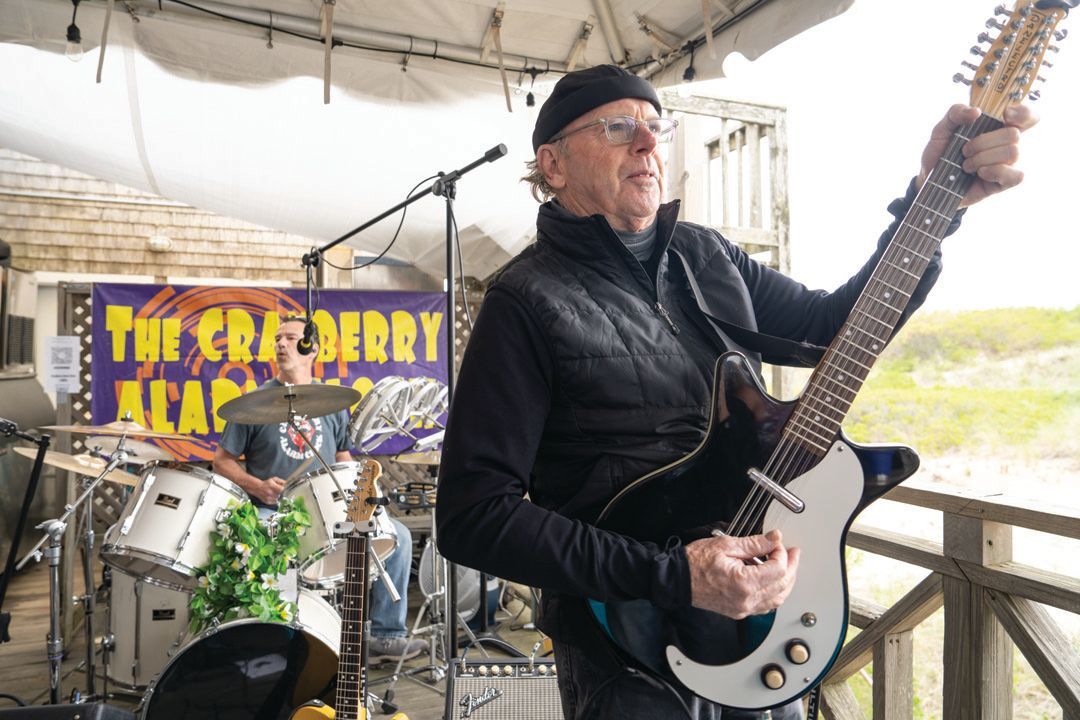
Tom Proch has his own memory of first hearing the music. His brother Phil was in the first grade when he got a Beatles record. “I’d be holding the album cover just strumming it like a guitar and we’d sing to it,” Tom said. “Phil took guitar lessons when we got a little older. I was always interested in the drums.”
Tom and Phil never put a band together, just played together for the pure fun of it. “A couple of kids from the neighborhood would come by and we’d make some noise, but never officially called ourselves a band,” Tom remembers. Phil eventually made a living as a building contractor. Tom was a chef at two of the island’s most legendary restaurants: The Opera House and The Club Car. Then Tom traded in the grueling work of putting out 150 plates a night for a job teaching culinary arts at Nantucket High School. Suddenly, there was plenty of time to put together a band.
They all knew each other in that way small-town people know of each other, especially small-town musicians. Curtin and Hunter played in bands on the mainland before moving to the island. Hunter said that Tom simply pulled him over on Madaket Road one day.
“He just stopped on Madaket Road, and I said to myself, ‘Is that Tommy? He’s crazy.’ He wanted my phone number, and that Sunday we got together and played, Phil and Tommy and me,” Hunter said. “The common denominator was the Beatles. It was never really about starting a band, just playing together.”
Curtin brought his lead guitar and his years of professional experience into the mix. “The great thing about these guys is they just want to play,” Curtin said of the Proch brothers. “For Tom and Phil, it is as if they jammed together as kids and then they went off and had careers. Decades went by when they weren’t playing."
“But when we all got together, it was like they dropped the needle back on the record on the same spot in 1971 and had the same enthusiasm,” he continued. “They weren’t jaded by playing gigs in sh***y bars all over New England. And it was refreshing. It was awesome. That energy just lifted me.”
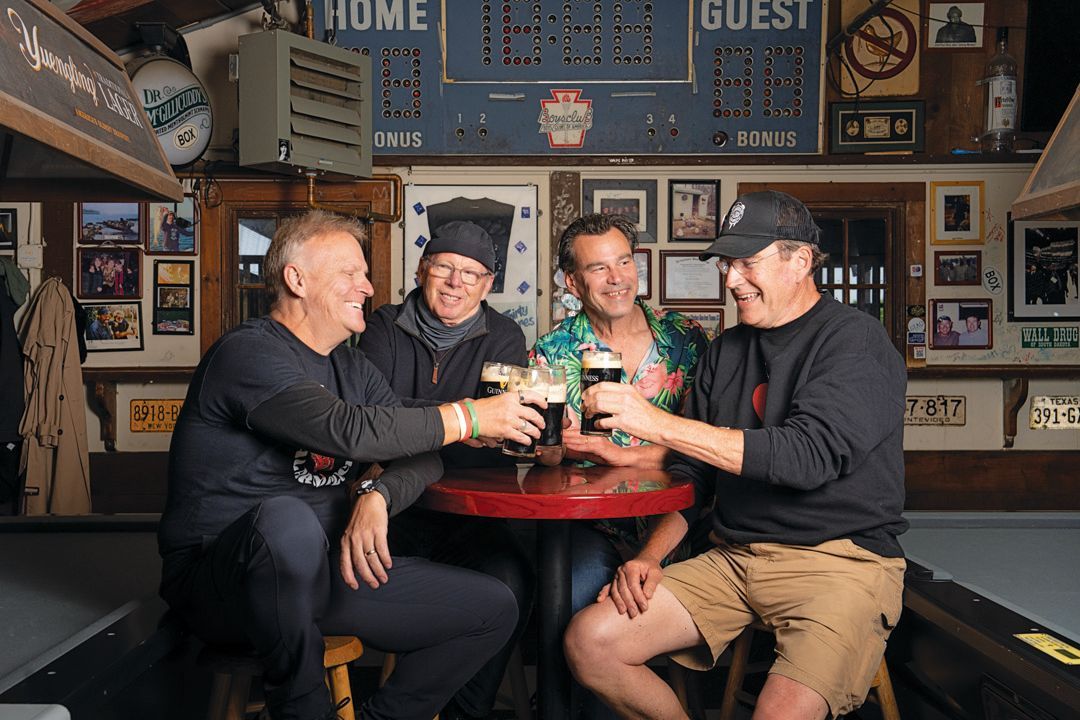
The idea of trying to get selected to International Beatleweek came from Hunter, who grew up in Scotland before ending up on the island in 2004. He was visiting an old bandmate in Liverpool and happened by the festival.
“What’s fascinating is these guys will have their minds blown,” he said. “I came back and said to the guys they had to go there. I wasn’t thinking of playing there, just that they would love to go. When you get there, the Beatles are everywhere. You walk around and there is Penny Lane, there is Strawberry Fields.”
The Cavern now has three stages and nearby is a stage at the Adelphi Hotel. Bands play45-minute sets, rotating between a half-dozen venues. The music begins at 11 a.m. and doesn’t stop until 3 a.m. It is likely the band will play a handful of sets. “I don’t want to say it’s a dream come true, because it was never my dream to do that,” Tom Proch said. “But like Frankie says, it will be mind-blowing.”
Hunter talked his bandmates into applying to be one of the hundreds of bands selected to play that week. The application called for a YouTube video and a CD of Beatles tunes. These are just four guys who like to play music together. They never even thought about promoting themselves that way. But they managed to do both, getting into a studio on the Cape to record the CD, which includes six Beatles tunes and one from John Lennon’s solo career: “Come Together,” “Don’t Let Me Down,” “If I Needed Someone,” “#9Dream,” “The Ballad of John and Yoko,” and “I Am the Walrus."
To get the video, they taped six iPhones set on video to mic stands and railings and posts on the deck at the Sandbar and recorded one of their shows. The selection committee at the International Beatleweek took a pass on Cranberry Alarm Clock the first year they applied. This time around the invitation to Liverpool arrived. It will be a bit of a homecoming for Hunter and for Tom Proch’s wife, Pauline, who grew up outside of London. There is even a small contingent of local fans who might make the trip.
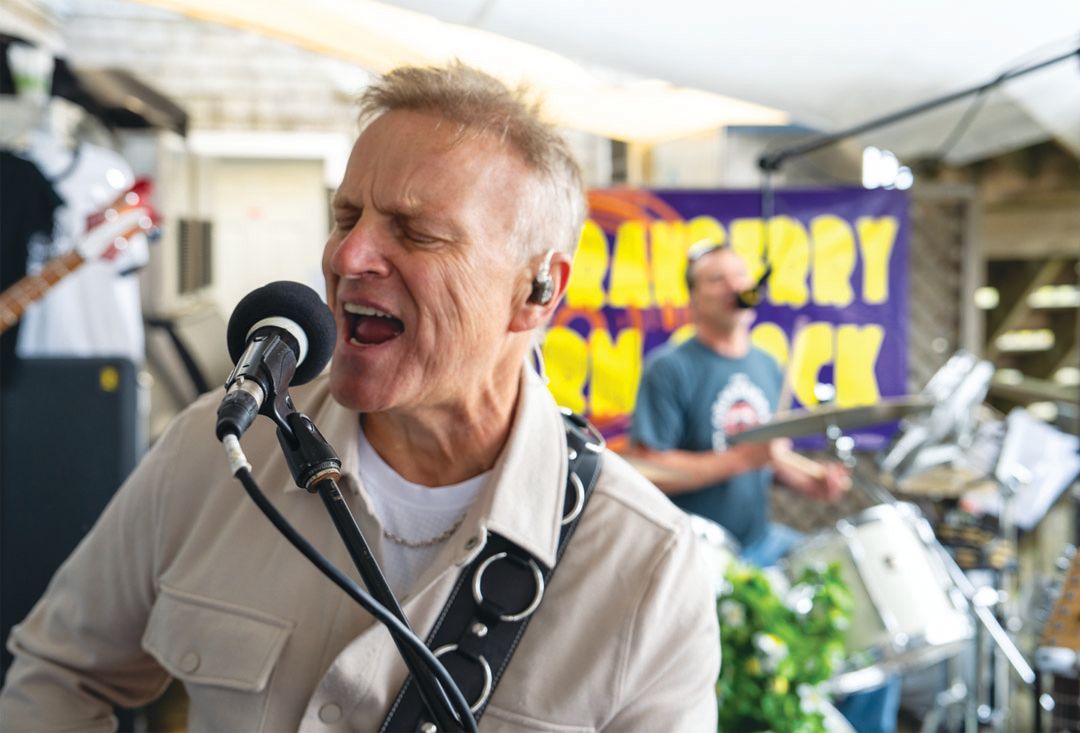
It is a chilly, windy afternoon reminiscent more of early autumn than of Memorial Day weekend, but the Sandbar on Jetties Beach is packed. Sure, the band has now been in a studio, but playing live before a crowd of their friends is what they do.
The deck is vibrating underfoot as the crowd stamps and dances as the band lets loose with "Crossroads,” a guitar-driven song that has been a staple of blues since the legendary Robert Johnson first played it in 1936 and fueled into overdrive by any number of electric guitar players. Some in the crowd know the words. A man clearly in his mid-70s is singing along while waiting to get the bartender’s attention. But what people, young and old, are responding to is the power of the drums and guitars.
“I’d look at a lot of what we play as real primal. And it is infectious because it is primal,” Curtin said. “I look at kids when we play the Sandbar that are in their 20s and they might not get it, but they get it. And that’s what is so wonderful of the nature of that kind of music. It’s lasted the test of time. These songs are 50 or 60 years old.”
Cranberry Alarm Clock might be heading for a gig at the epicenter of all things Beatles, and they kicked off the set with “If I Needed Someone” and “Ticket to Ride,” but they are not what is sometimes called a tribute band. They play blues rock. Covers, yes, the Rolling Stones, the Doors, anything that strikes their musical imagination, but they look for a way to make the music their own.
They try to strip the music down to its core; they flow one song into the next at unexpected places. They have fun. “You've got to put your own stamp on the music,” Hunter said. “You’re not capable of doing what the Rolling Stones or Pink Floyd did. Simple as that. You do what in your capabilities you can do.”
The band tends to all talk at once, an indication of how comfortable they are with each other and probably an insight into how they create their sound. “We’re just big music fans,” Tom said. “I get up at 3 a.m. to use the toilet and there is a song, maybe something we’ve been working on, in my head. As soon as I get back up in the morning, there is always music in my head. It’s amazing.”
“We always try to add four or five songs each year,” Hunter added. “‘Eleanor Rigby’ might morph into Heart’s ‘Barracuda’ morphed into the Stones’ ‘Paint It Black.’ It’s fun.”
Keeping a band together can be a notoriously difficult task. Talk to any experienced musician and you will hear cautionary tales of runaway egos that prevented bands from staying together despite making good music. Tom Proch calls weekly rehearsals and gigs his therapy, a chance to set aside everything else in life and just play music, just tap into the beat. It is a feeling he tries to share with his audiences by leaving tambourines and a cow bell and drumstick on tables so the audiences can pick them up and join the band for a moment.
“It’s great. They’re like part of the band. We’ll be playing and it’s like, ‘Willie’s here!’ Or local people we know,” he said. In the end, this is a story about chasing that backbeat, about the joy and friendship based on playing music together. Sure, they will be playing every weekend at the Sandbar and leaving for Liverpool in late August, and they have been in a recording studio to cut a couple of CDs. But they make it clear that they would be just as happy getting together for the pure fun of playing rock and roll, just like when they were kids and the music first grabbed them.

